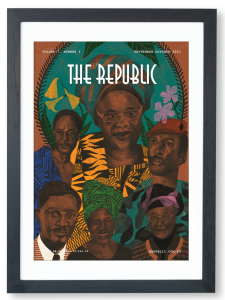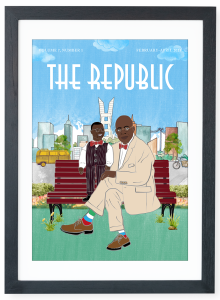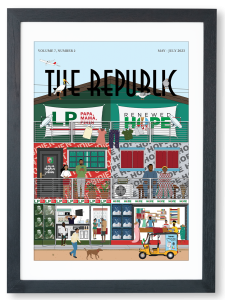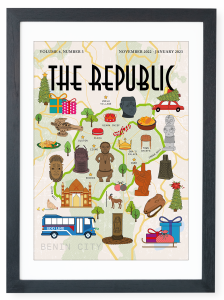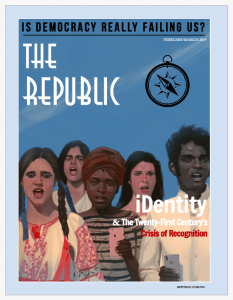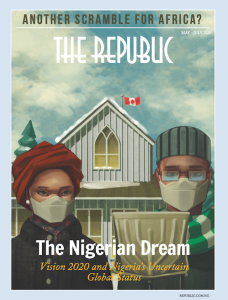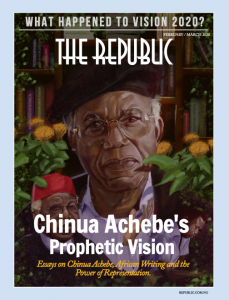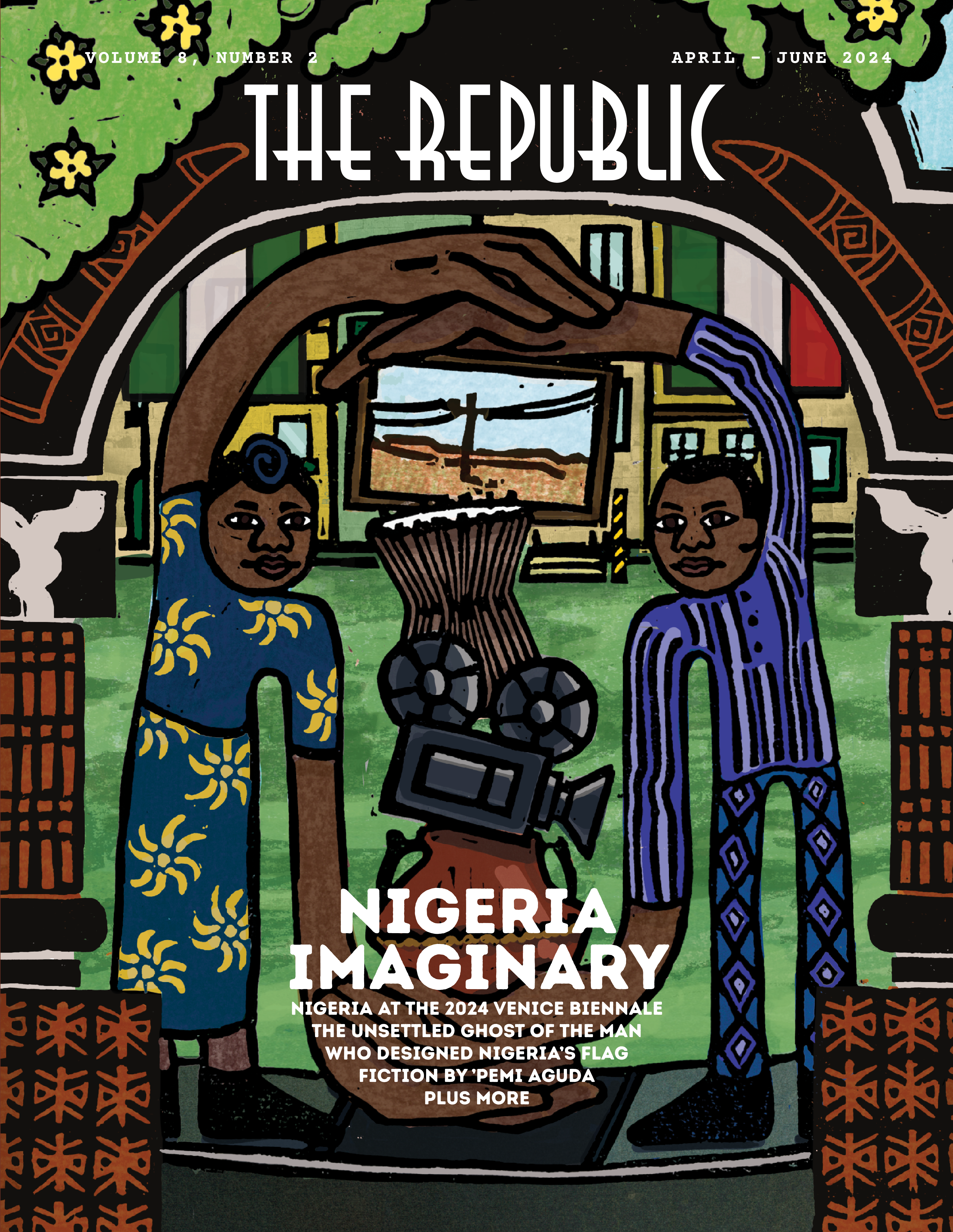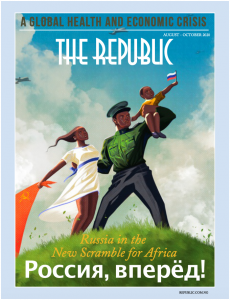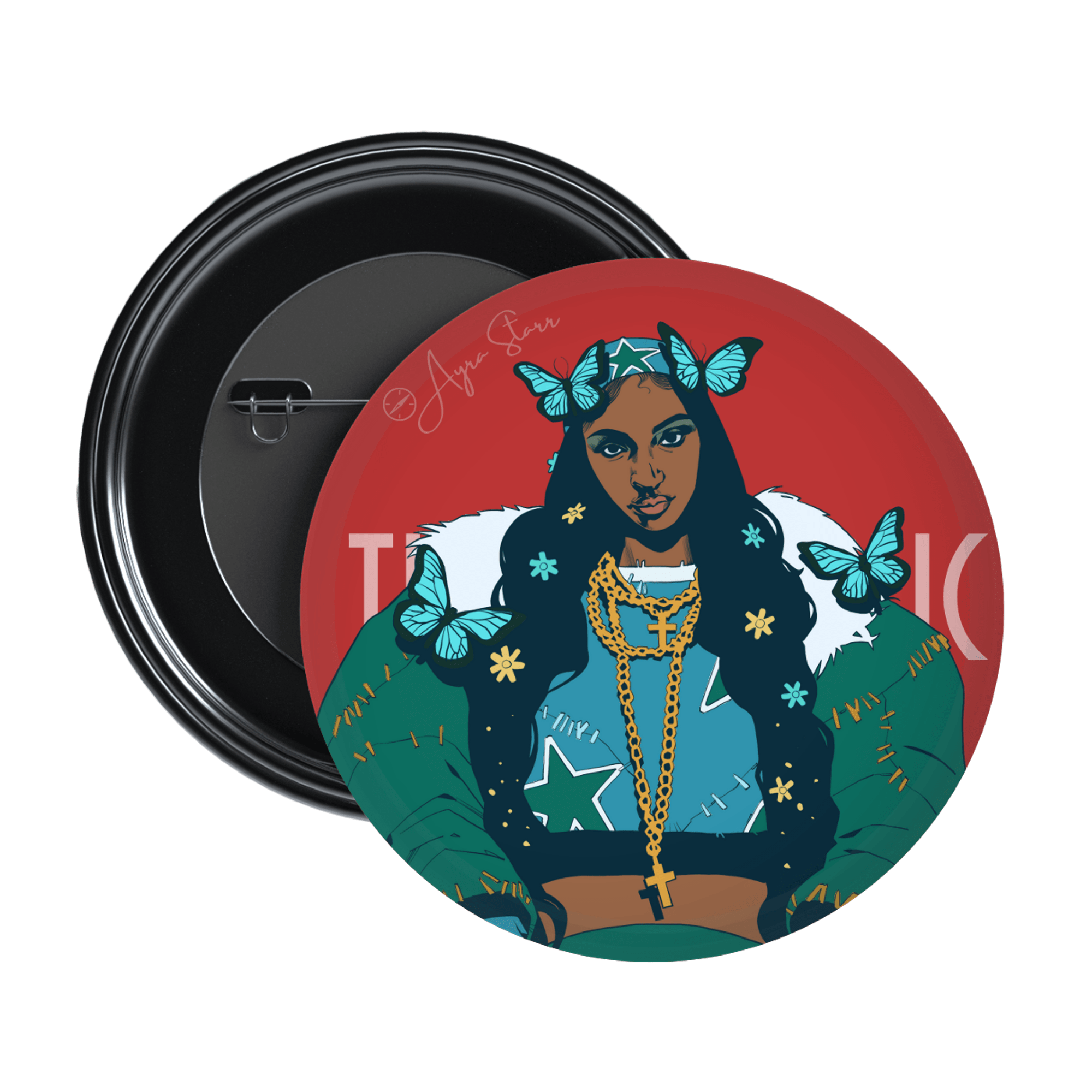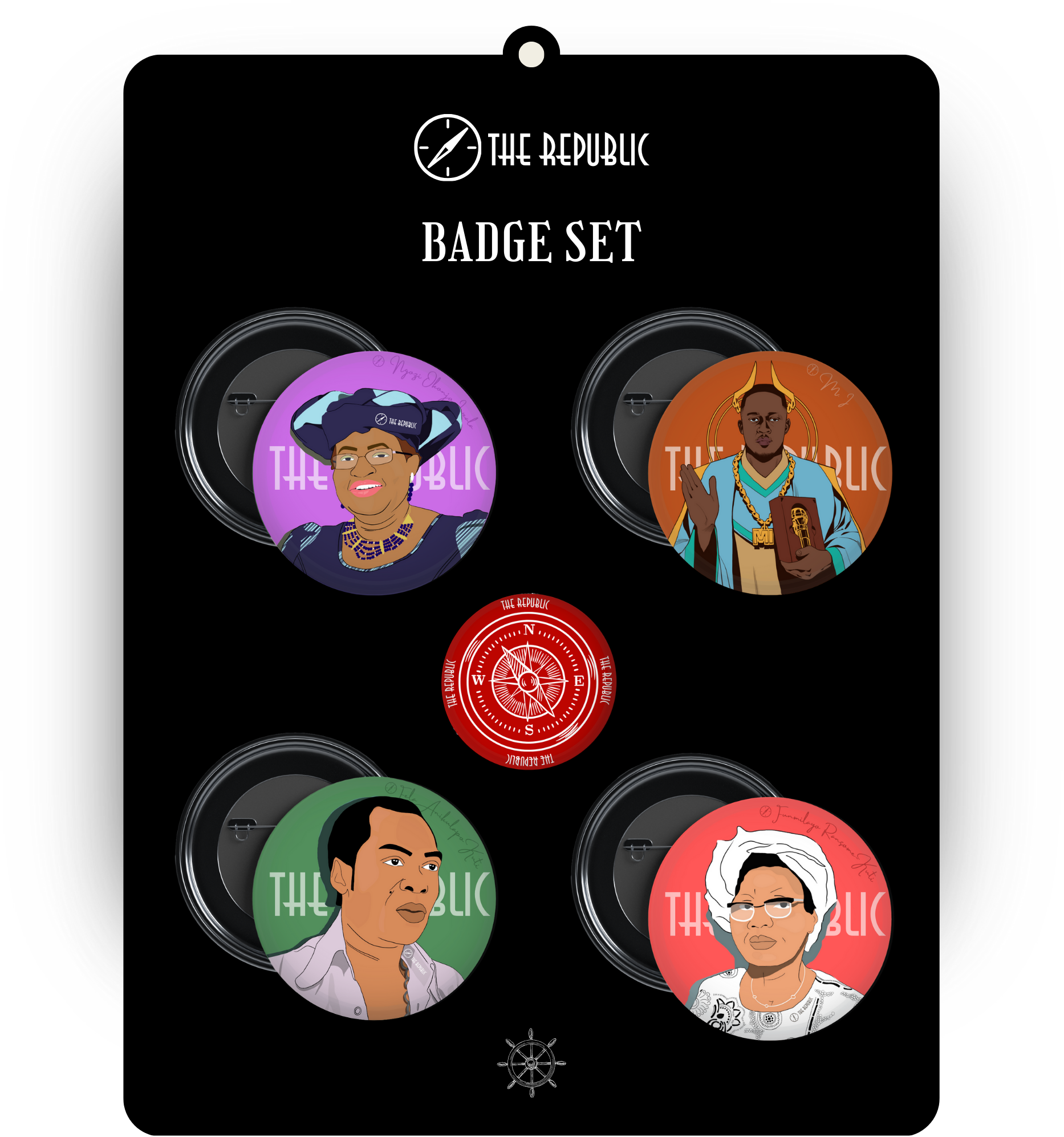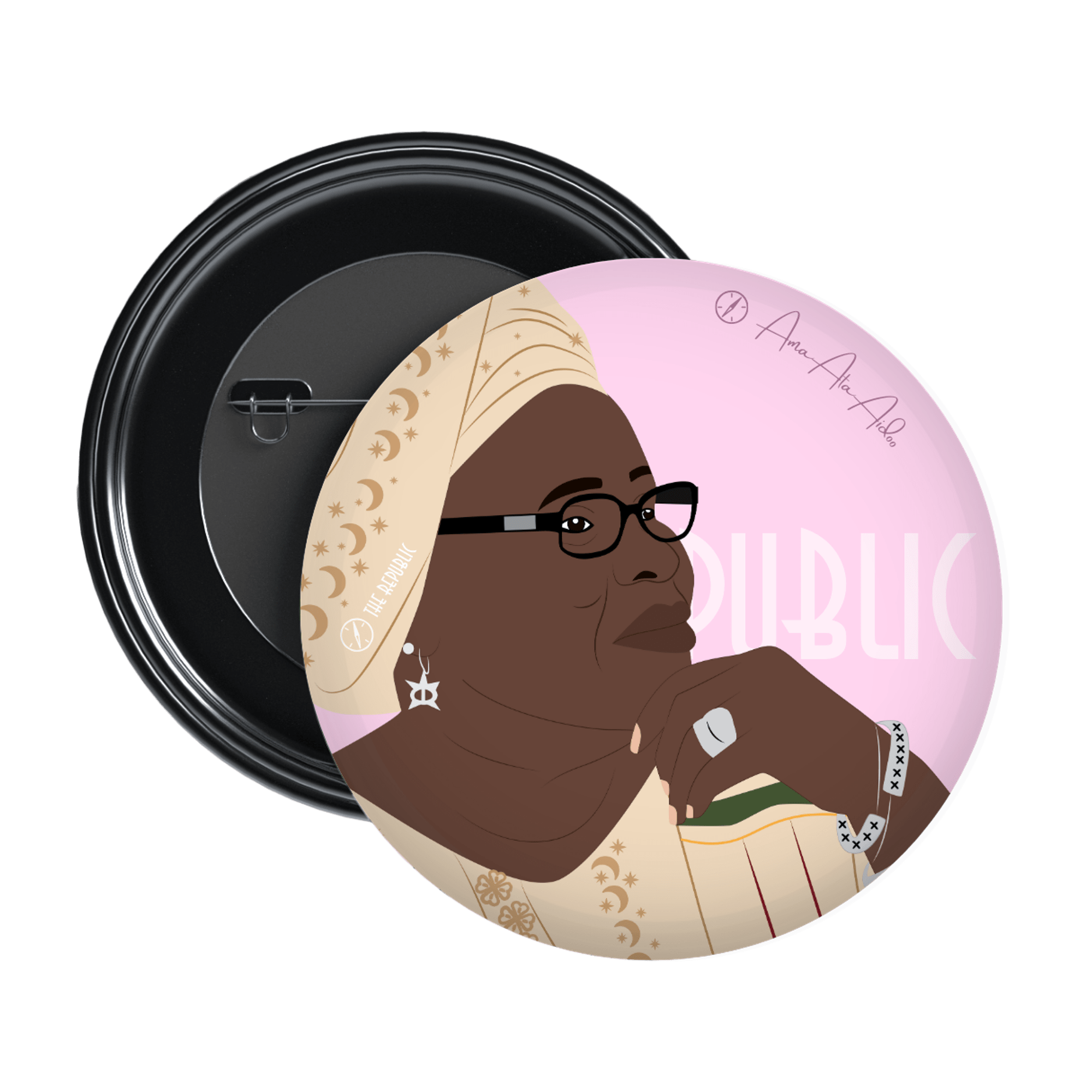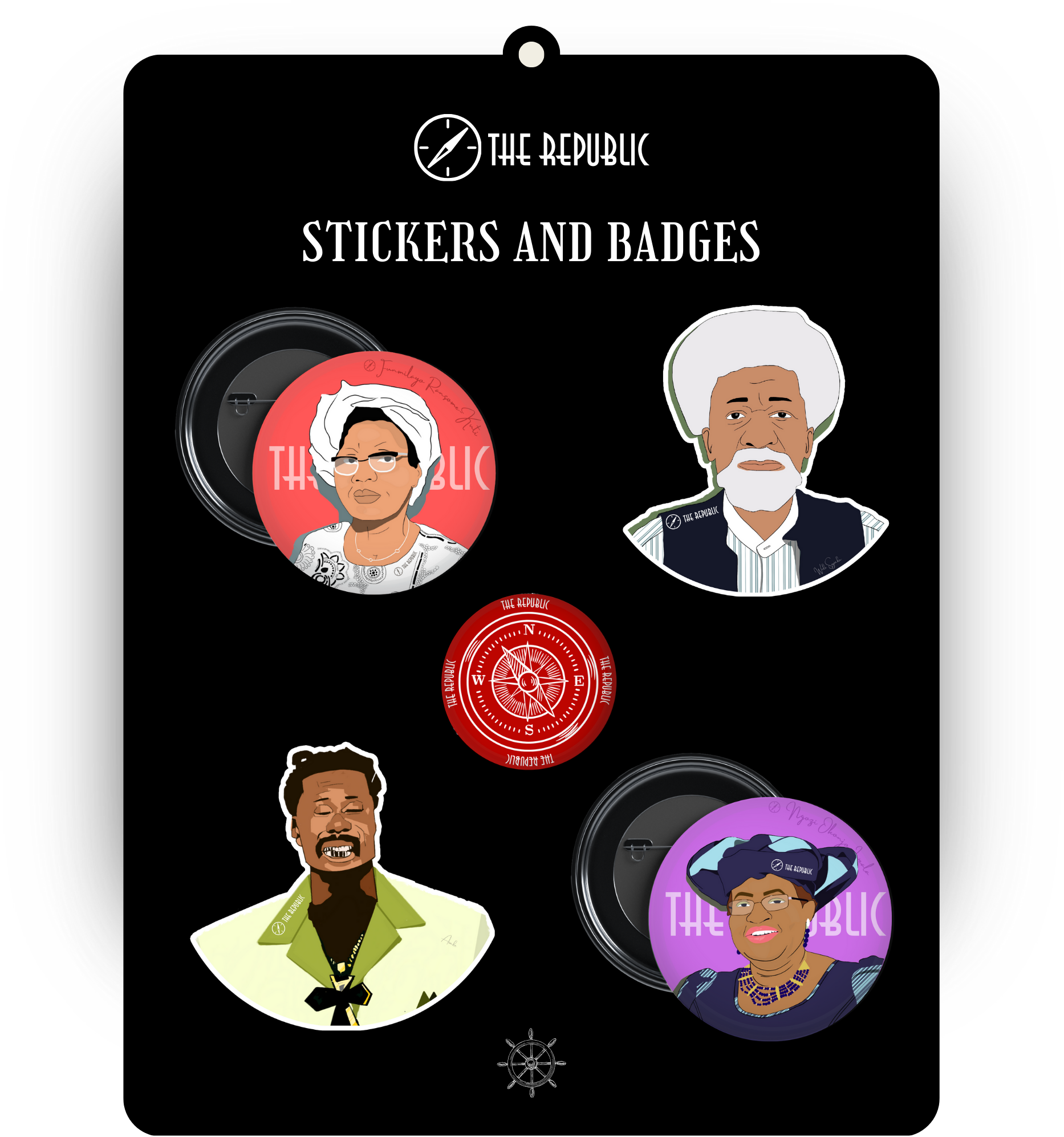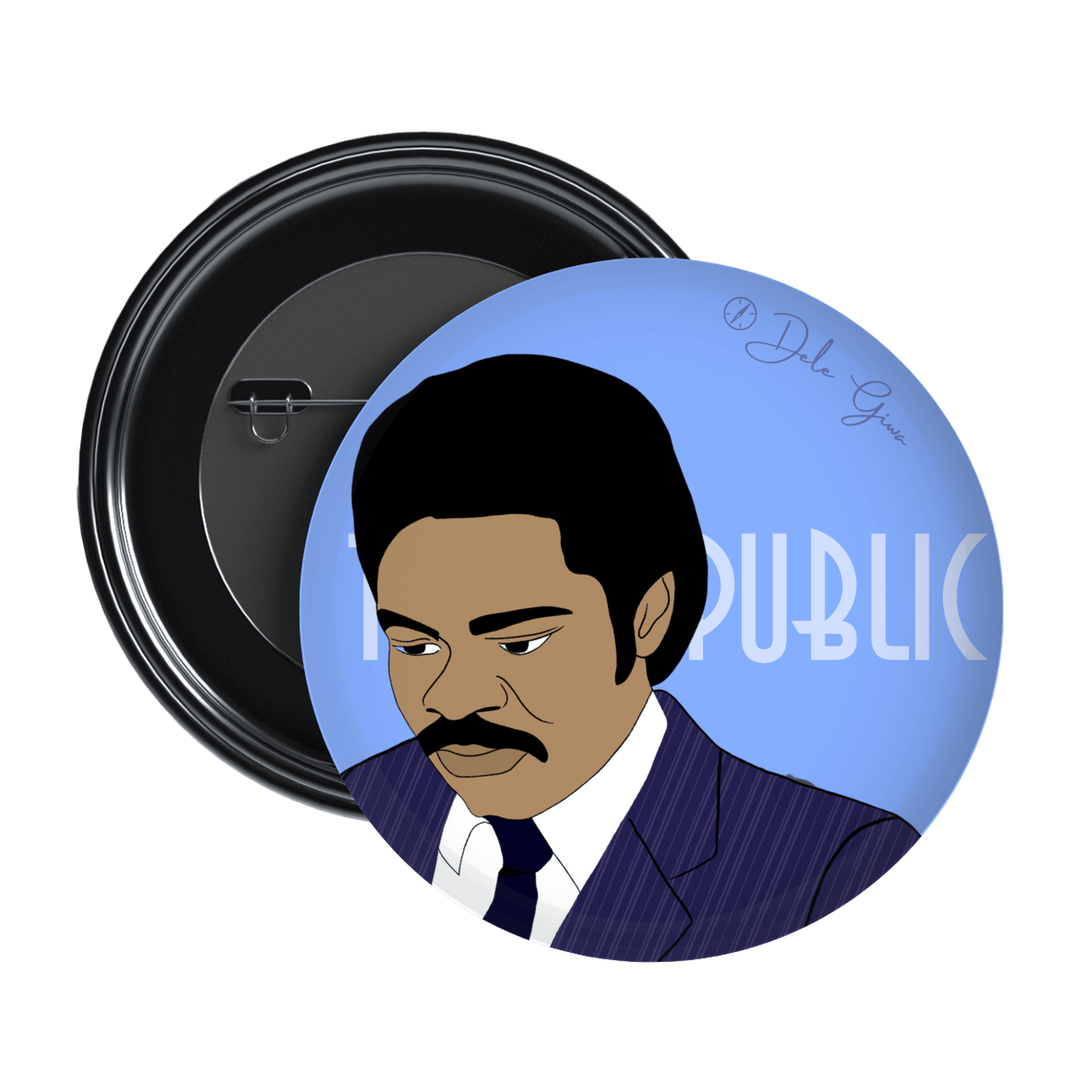
Nigerian Rapper, Tobechukwu Ejiofor known as iLLBLISS. Photo Ref: Anugo Osadebe / THE REPUBLIC.
the MINISTRY OF ARTS / MUSIC DEPT.
The Rap-Centric Philosophies of Illbliss

Nigerian Rapper, Tobechukwu Ejiofor known as iLLBLISS. Photo Ref: Anugo Osadebe / THE REPUBLIC.
the MINISTRY OF ARTS / MUSIC DEPT.
The Rap-Centric Philosophies of Illbliss
Hip-Hop is synonymous with bossy swag and few rappers from Nigeria reflect this as poignantly as iLLBLISS. Tobechukwu Melvin Ejiofor, the rapper’s real name, is a walking embodiment of class and composure. All his albums have chiselled a humane figure from the rocky privacy he uses to surround himself and those he loves. But now iLLBliss is keeping the mystique at bay; he’s a father of two and, more than ever, has the need to open up his life and his stories. The result of this is Sideh Kai, the twelfth and most personal album iLLBLISS has ever put out.
When iLLBLISS got on a Zoom call with me not long ago, his signature baritone commandingly expressed his narrative. He speaks in a lucid, drawn-out way, his anecdotes elucidated through his wealth of experience in the music industry. For this album, he says, work started in October 2022 when he met Skitter, who produced all but two records on the album. He says:
I met him like two months before then through another friend of mine he had just made an EP for. So we were sitting down, reviewing the EP, and he just played some of his beats, randomly. Just beats he hadn’t used for anything in particular and I just found out there was something very soulful about his music and I connected instantly with his production style. Then we agreed to meet up and maybe do a song or two. From a song or two, we ended up creating the entire project.
Although iLLBLISS didn’t set out to make another album, the alliance with Skitter activated fresh ideas. While in the process, he began to conceptualize the body of work. ‘I’m pretty much an album artist,’ he affirms. ‘If you look at my discography carefully, I never just drop random singles. They are always part of an album.’ The rapper wanted to create an album dedicated to his two daughters and, more inclusively, feature a Gen-Z-leaning record that talks ‘about them in a satirical way,’ he says. ‘I also wanted to create a record about the spirit of Nigerians…so when these ideas started coming, I realized it was album time and I had just found the direction I needed for my next album.’
THE MAKING OF SIDEH KAI
Like most iLLBLISS albums, Sideh Kai blends multiple perspectives to create an enthralling, encompassing whole. Living through the current state of Nigeria is just one of the album’s arcs. Others include family and tradition, which, to anyone familiar with the music of iLLBLISS, knows it’s as important as the air that passes through his lungs to form his words. One half of this tradition is his Igbo heritage, and the other half is the Hip-Hop tradition, which he carries just as triumphantly. iLLBLISS is in continuous communication with the forebears whose contributions to the genre—sonically and ideologically—he follows as any dedicated student would. When I asked which albums were like totems for his own process, the responses were expected yet illuminating. Seminal albums like Nas’ Illmatic and It Was Written, JAY-Z’s Reasonable Doubt and The Blueprint, The Notorious B.I.G’s Ready to Die and Life After Death, canons of the 1990s boom-bap inflected era, ‘right up to Kanye West’s The Dropout,’ he says, adding that:
An album is like a scrapbook—that’s why it’s called an album; it has a range of emotions. Sometimes it’s love, sometimes it’s political, conscious; sometimes it’s just the arrogance of a rapper, conveyed through bars. And that is how I create; that’s how I fell in love with Hip-Hop. I don’t know how to just put a bunch of records together. For me, it must be storytelling; it must have thematic diversity—that is how I always approach the music.
shop the republic
This approach is visible in Sideh Kai, where iLLBLISS rattles off bars with beastly force. He can also put bars together with the zen of a philosopher. It’s proof of an ever-expanding musical palette, which comes from purposeful listening to what’s happening around Hip-Hop. Considering how quickly the genre’s conventions changed over the years, it’s a no-brainer that one must do this to keep themselves razor-sharp as an MC. Two records on this album have a booming drill base, a natural extension from the rapper’s maximalist Trap leanings of the mid-2010s. ‘Hip-Hop borrows a lot from various genres and it keeps changing forms,’ he says, ‘and with each generation comes a listening habit; there’s a way that the audience tends to key into you. They just want what they want at every point in time.’ Making an example with ‘Notorious Thugs’, the collaboration between B.I.G and Bone Thugs N Harmony, iLLBLISS suggests that the former flipped his signature drowsy flow to accompany his guests. ‘Biggie had to change style because he knew [Bone Thugs N Harmony] had a different style, a unique style that was from the Midwest. And that’s the dynamism in the flow; you must not go in one direction.’
A scholar of forms—this is who iLLBLISS is. Sonic decisions are considered side-by-side with demographic nuances since no musician wants to work so hard and then go unheard. This awareness works on Sideh Kai, as he tends to fit into the peculiarities of his features, which include ODUMODUBLVCK, who’s unarguably the hottest rapper in Nigeria at the moment. Assigned to their unique roles, both rappers created the scorching ‘Full Chest’, which was named by iLLBLISS’s wife, Munachi, who once told him she couldn’t stand people who do things half-heartedly. ‘Even if you are a bad person, do it with your full chest,’ she used to say, and he made a mental note of that.
A long-time fan of iLLBLISS, when ODUMODUBLVCK got the beat, he recorded and sent his verse back in about one hour. Cobhams Asuquo’s feature—he appears on two songs—comes naturally, after years of both artists being friends. Teni had wanted to be on a different song, something soulful, but the eventual result was more sun-streaked. Fave, iLLBLISS recalls, had recorded three hooks at Skitter’s studio in Surulere by the time he got there. ‘She found instant chemistry with him,’ he recalls, and the one she really liked became their collaboration. An open house of an album, the other features include Vector, Umu Obiligbo, Lade and Made Kuti, whose sax layering viscerally excites. ‘For this album, I kept it open,’ iLLBLISS says, ‘I kept the conceptual range open so I could tap into the energy of the featured artists. So, I also let them decide some of the direction.’
shop the republic
THE DEMANDS OF TRADITION
Lush vegetation surrounds Nsukka, the serene south-eastern city Chimamanda Ngozi Adichie immortalized in Purple Hibiscus. It also houses the University of Nigeria, where iLLBLISS got his tertiary education in the mid 1990s, and where he professionally got into Hip-Hop, the art form that has most shaped his perspective and philosophy. There he was introduced to Andrew Bright Igho, popularly known as B-Elect, a rapper and poet, in the early 2000s and along with four other acts—Elajoe, Obiwon, Amaka Nwosu and Chief Rocka—they made up Da Thoroughbreds, which would become one of the defining rap groups of its time.
This circle of rap enthusiasts worked closely, but only for a few years, as the artists followed their initial plans to operate individually. While Obiwon and Elajoe had a few hit records, and tending purist rap ideologies and communal exercises was B-Elect, who tragically passed in 2019, it was iLLBLISS who most carried the group’s mythos into enclaves of popular culture, through his commercial success upon return from overseas. His first two solo albums, Dat Igbo Boy and Oga Boss, were released in 2009 and 2012 respectively, and together they constructed the brand he still operates on today—that of the conscious, bossy Igbo man, whose understanding of the mechanics of business doesn’t obstruct his ear for culture but enhances it.
On his debut, iLLBLISS was working within the tradition of Nigerian pop-rap, incorporating features that ranged from WAJE to Durella, General Pype and Eldee Da Don—all ubiquitous names at the time of release. The album’s biggest record was, however, the incendiary ‘Aiye Po Gan’, which cut its sound from the street appeal of Terry G, at the time one of the most penetrating artists across the continent. Still, that album didn’t move iLLBLISS close to the tradition he would have wanted, not as Oga Boss did. A classic in every sense, the 15-track project showcased a more seamless handle between Hip-Hop and Pop, with the curatorial expertise of iLLBLISS shining through. This was the album that set the tone for the second coming of Igbo rap, with the scene’s next great Phyno producing several records and appearing on two as a featured artist—alongside Naeto C on ‘Hustler’s Footsteps’ and ‘Anam Achi Kwanu’.
‘I never read the 48 Laws, Oga Boss soon to be in stores,’ raps iLLBLISS on the former, an admission which, while seemingly simple, is actually an indication of his autonomy as a thinker. With the albums that followed, iLLBLISS has consolidated his star power but ponder this for a second: he started rapping professionally in the Golden Age of the nineties as part of Coal City’s Finest and solidified his name among underground lovers in the 2000s as part of Da Thoroughbreds and, by the end of that decade, had released his first solo album. This means iLLBLISS is currently in his fourth decade as a rapper and so, he owes some responsibility to the tradition that made him who he is.
He pays this homage forward on ‘Masterclass’, one of the most poignant records on Sideh Kai. The entire hook is phrased in a way that’s familiar to Hip-Hop fans, which is addressing the genre as a person, as Common most popularly did on his 1994 single, ‘I Used To Love H.E.R’. Like his colleague-in-rhymes, iLLBLISS frames his own confession with affectionate clarity:
So I, will not give up on you
So long as I breathe, will not give up on you
So long as I write, so long as I walk
So long as I’m fit, I won’t give up on you
They try to change how I really feel about you
For everytime money short, they blame it on you
For everything I am today, I owe it all to you
From the heart, Hip-Hop, I say thank you
Last year, Hip-Hop celebrated 50 years of existence and iLLBLISS, who is now forty-five, embodies its influence in Nigeria. Many still fondly recall how he was presented the Soundcity Music Video Award by Nas in 2008, an honour that is even more noteworthy when one considers that iLLBLISS had barely made his mark as a solo act then. In many regards, he is a pioneer and he’s yet going strong, flowing with water-fresh assurance while maintaining the familial angle of his album. Yet another example of iLLBLISS’s insistence on tradition is his depiction of Igbo culture and values across his discography which, when paired with the discipline of Hip-Hop, has placed him in the Eastern region’s Mount Rushmore of rappers.
Since the late 1990s and early 2000s, the South East has produced some of the most sterling rap voices we have ever heard. Emerging from this tradition is iLLBLISS, who was placed between two generations: that of Nigga Raw and MC Loph and that of Phyno. On ‘Masterclass’ he gives a shout-out to the pioneers, rapping:
Attention lyricists, I hope you hear the mockery/ For so long we been dealing with the fuckery/ For so long, we been slept on and overlooked/ Now I look around the table, all my boys are overbooked/ Few of us found a way to keep the lights on/ Most of us got forgotten in the fucking struggle…the game never promises a pension/ No legacy or trace, of the architects/ Distorted history, playing up the misery / We had godfathers that paved the way for the youngings to brace up and start grabbing the microphone…
Unsurprisingly, iLLBLISS is well versed in the history of Nigerian rap. When I ask about his forebears in the game, his response is elucidating, flowing down from the pioneering efforts of the SWAT Roots group, which was early-on affiliated with rappers such as Mode9, Terry Tha Rapman and OD, an influential posse with members from Jos and Kaduna. iLLBLISS recalls, in vivid grandiosity, how two days before his matriculation into university, he attended a show called Social Outburst. Most of the performances he saw were mimes, ‘not original music,’ he noted. However, one person—and his performance—really stood out.
This guy went on stage and the lights went off. And when the lights came on, he was dressed in all black, in a robe, with a skull in the left hand and some chalk around his right eye and then he started to do some incantations: hey, dem ma ma pity pity eh, I’m a medicine man and then he started rhyming and that just blew me away; the beat was so Hip-Hop. That guy turned out to be a guy called Alfred Atungu aka Six Foot Plus. He was one of the founding members of SWAT Roots and I was going to meet him eventually in university and we became friends. That guy might not know it, but he inspired me so much to be a rapper; he inspired me to go and write original music.
He also mentions The Black Masqueraders, who had a record titled ‘Pour Kerosene’. It was a soundtrack for a Tade Odigan movie called Out of Bounds; there’s also Lord of Ajasa, who he considers ‘the godfather of Yoruba rap’; and Nigga Raw, who ‘was doing the same thing in the South-East.’ According to iLLBLISS,
It just so happens that the South-East was more of a Highlife market and wasn’t a core Hip-Hop market. So, a lot of those founding fathers never got their flowers. I mean, Raw is fine and doing good, but when I look at all the traction—if there was no Raw, there would have been no Phyno; in fact, Raw introduced me to Phyno. There would be no Jeriq The Hussla; there would be no Zoro. So, it’s generational. I just feel like people get caught up in what’s new, what’s buzzing and then they totally forget the guys that created the framework for all of this. A lot of rappers were also disadvantaged; the reason why my life moved in a different trajectory is because I never did rap music alone. I always had day jobs; I would go to work, but in the evening, I would go and rap.
shop the republic
FAMILY AS THE ESSENCE OF ILLBLISS
The names of iLLBLISS’s children are Sochikaima—‘it’s only God we know’—and Kachimsideh—‘the way my God is’. Growing up in the industrial city of Enugu, he learnt to appreciate the genius of Igbo people, in everyday life but also across commerce and culture, and on ‘Red Caps’ he reiterates the need for more indigenous people to speak the language. He adapts as a metaphor the high-standing caps, which, within the Igbo culture, are among the most recognizable totems of chieftaincy. He also extends the record’s relevance with his mention of Peter Obi, who’s one of the most revelatory personalities in contemporary Nigerian society. The record becomes one of the communal touchstones of the album which, when paired with musings he has made about family elsewhere on the project, creates an indelible profile of iLLBLISS the man and Tobechukwu the father. The album title—Sideh Kai—is derived from the names of his two daughters.
In 2022, iLLBLISS gave a rare intimate interview with Chude Jideonwo on his popular show, WithChude, where he talked about how he and Munachi had to wait eight years for the birth of their first daughter. During that time, they faced the expected challenges of seeking something more; it was a pain, but with faith, he explained to Jideonwo, they forged on:
That period was incomplete. This is why you must marry your friend. My wife’s name is Munachimso and it means I walk with God; my God is always by my side. Sometimes she’ll be like babe, why are we not panicking, why are we not having anxiety about children?… People tried to panic me and wifey, you know let this preacher come and pray for you. But we were happy, we weren’t even saying our rosary let alone having to run around for things but we stayed with God.
On the standout cut from Sideh Kai, aptly titled ‘DAUGHTERS’, iLLBLISS brings his girls into the booth. The resultant emotion is too pure for words; when one hears the adorable exchange between father and kids, the ease with which he tells them ‘I love you’, it brings into view an alternate vision of raising kids, quite advanced from the tough persona some men take into their families. Even with all the stiff-faced braggadocio this particular rapper has showcased throughout his career, here he allows himself softness, which gives the album a rounded edge. Then there are also the voice-overs of his parents talking about how they raised him and his siblings; how proud they are of all that he is, a father and a man of values and, above all, an Oga Boss, who has stepped profoundly into his greatness. Accolades stretch from the harrowing past into the present.
‘Family is everything to me,’ iLLBLISS tells me. ‘It keeps you grounded and remains the strongest support system for me. I am blessed to come from a family with strong values. This guides me through the business. I got this far off the support, love, prayers from family. There’s no iLLBLISS without the fam.’⎈




